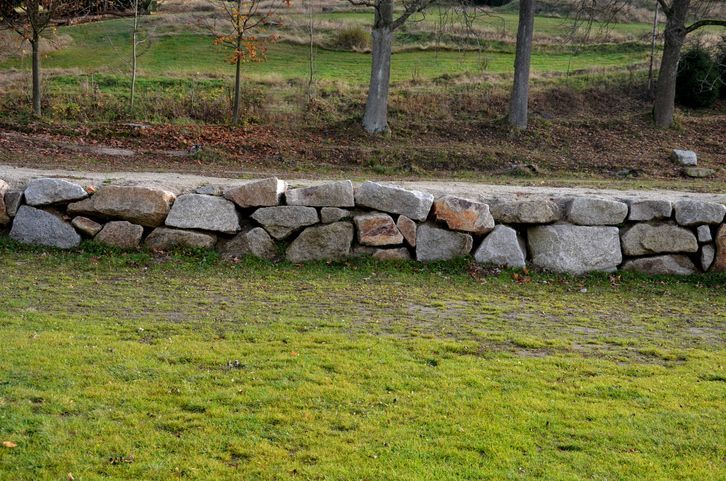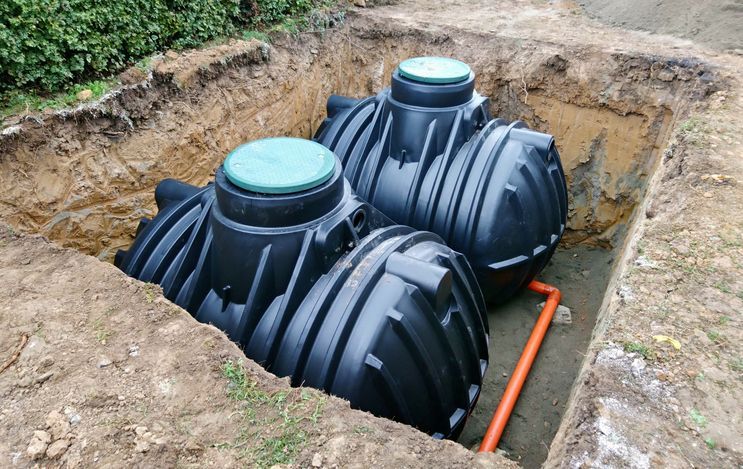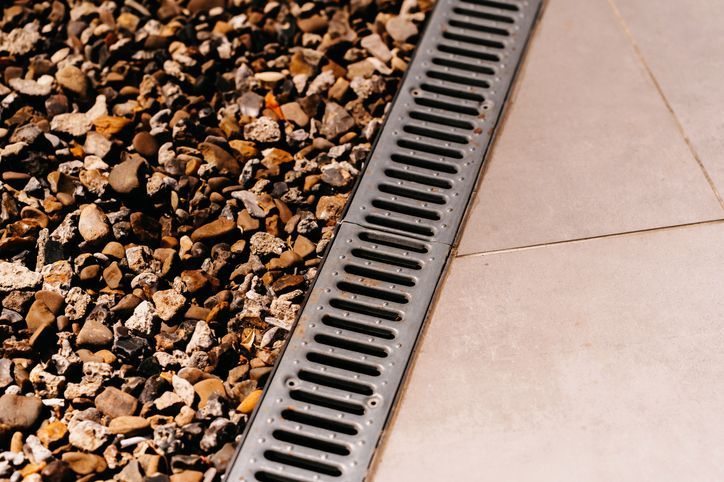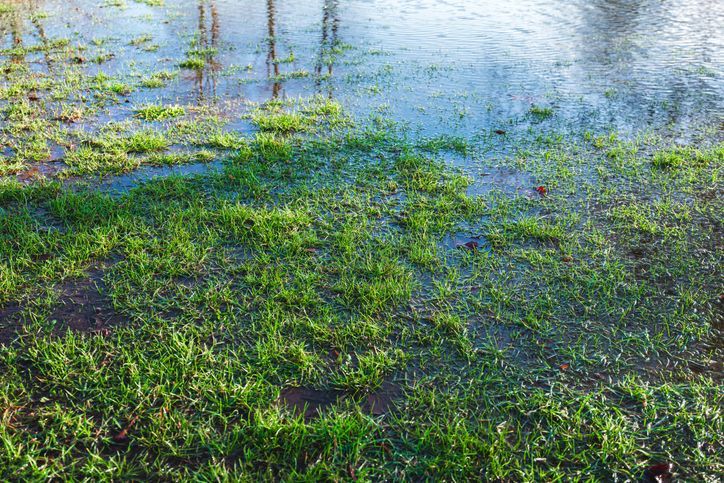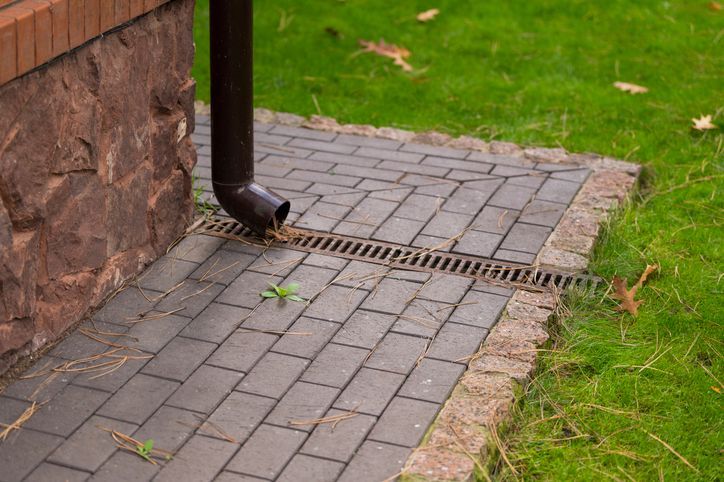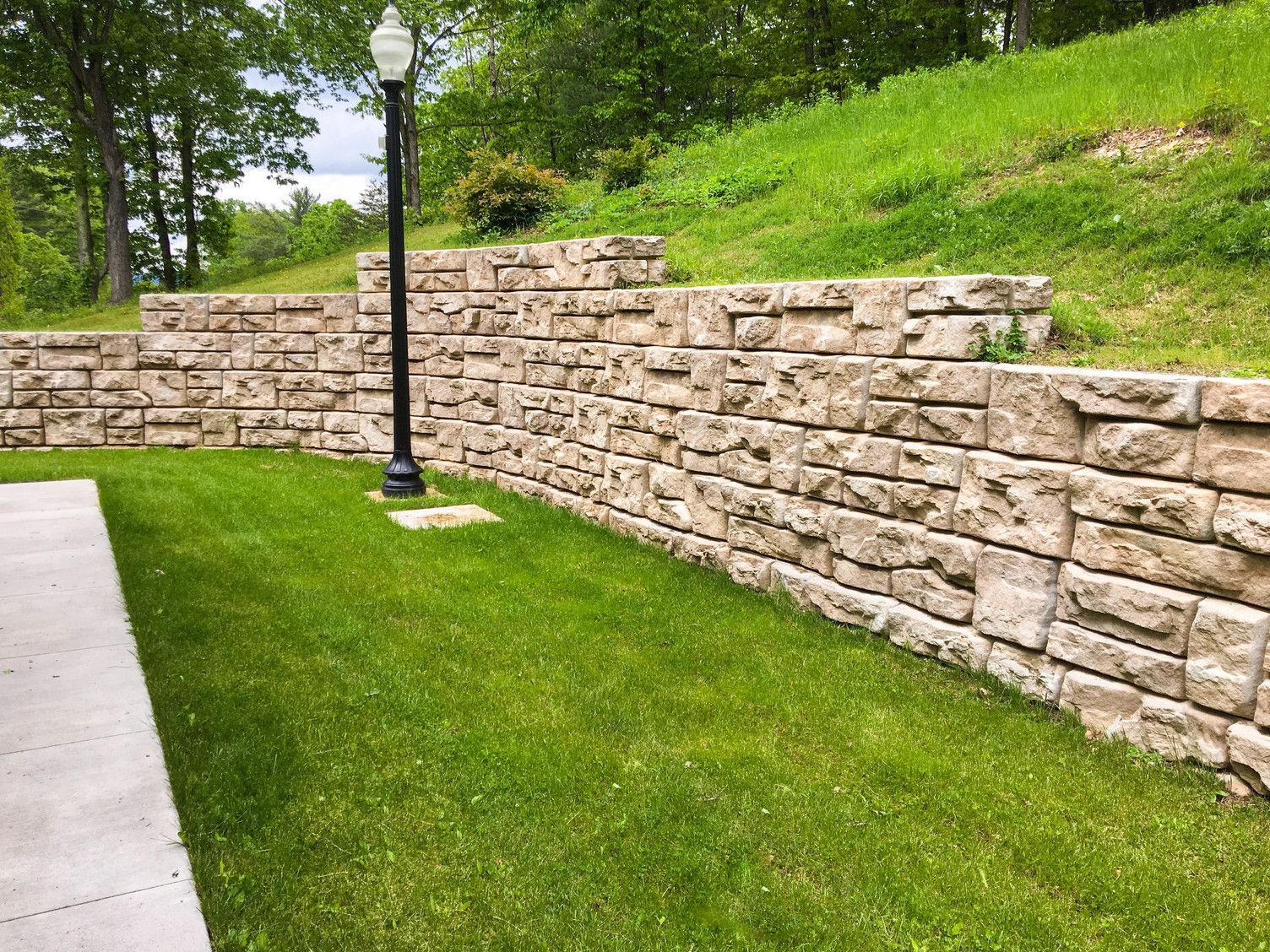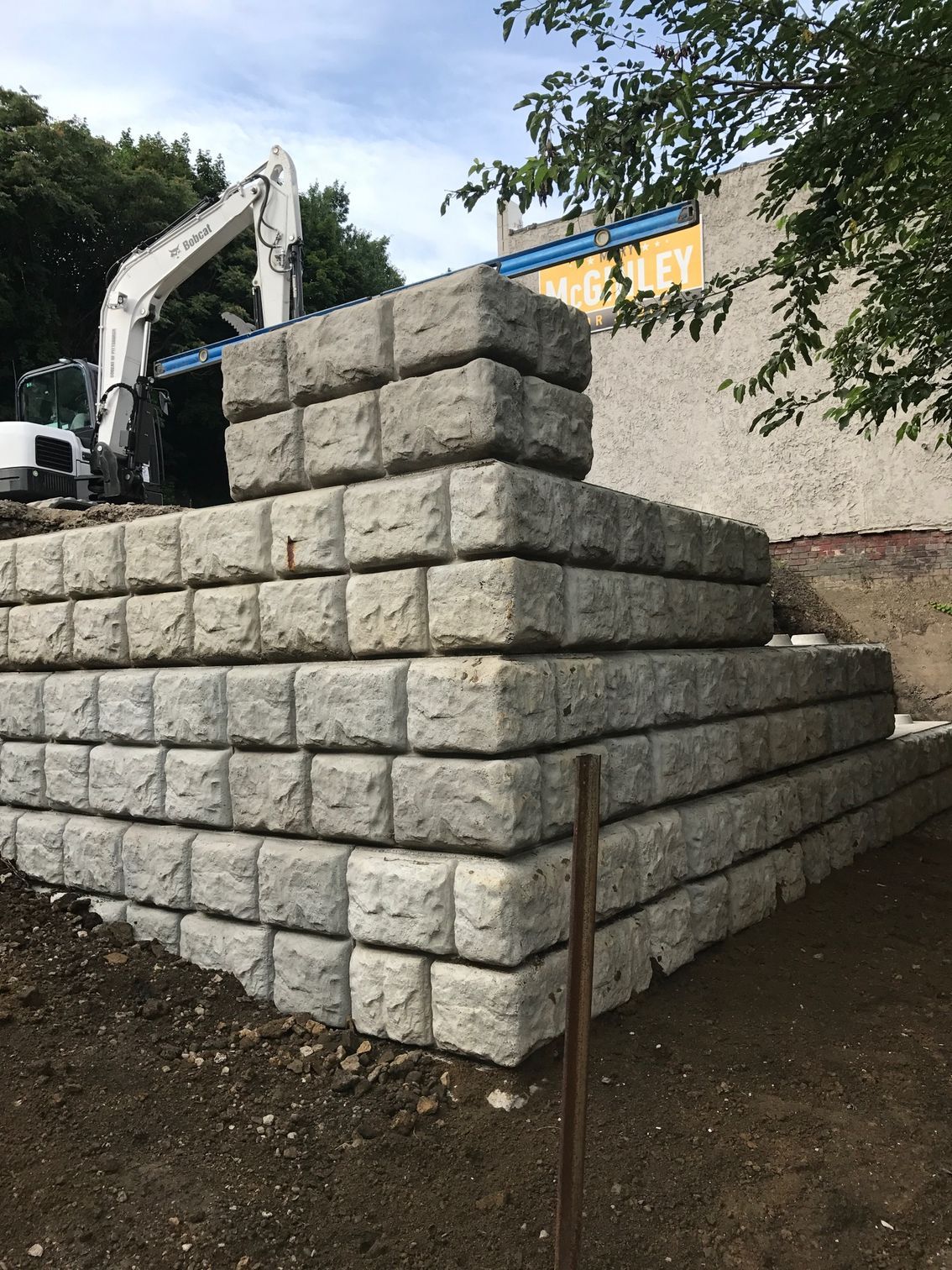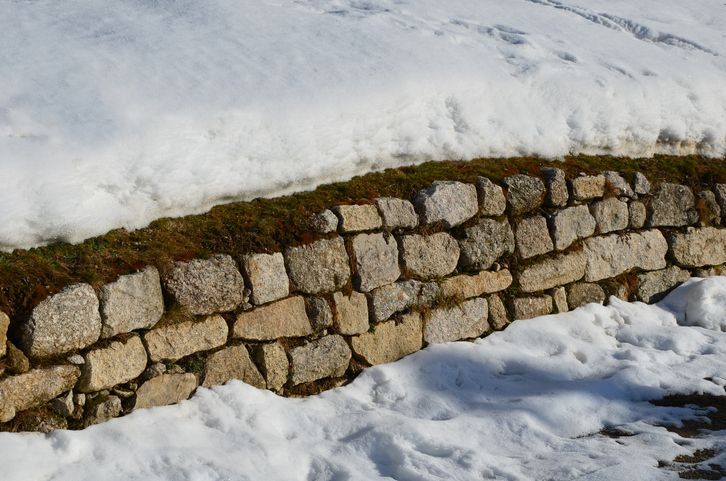The Ultimate Guide to Excavation Services: Costs, Timelines, and Safety
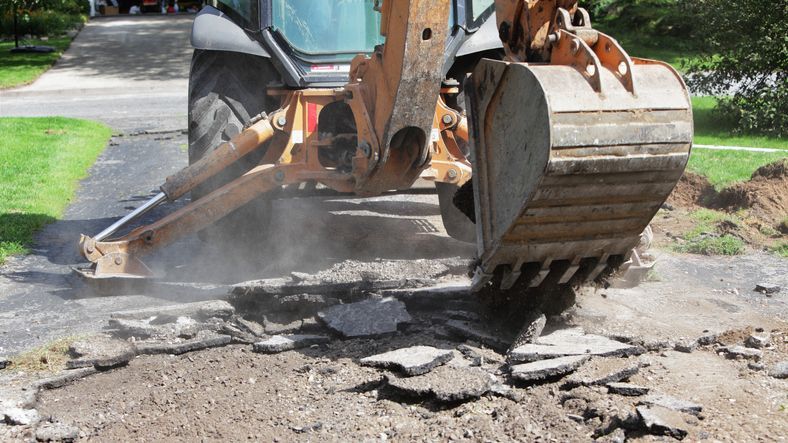
Excavation plays a crucial role in shaping the landscapes and building foundations of the spaces we live and work in. Whether you're planning to construct a new home, resolve drainage issues, or enhance your property's layout, excavation services are often the first and most crucial step; from digging trenches to clearing land and grading, excavation is used to create a reliable foundation for your project.
J Bird's Landscaping has become a trusted name in excavation services in the South Hills. With decades of experience and a commitment to customer satisfaction, J Bird's provides efficient, safe, and well-executed excavation solutions tailored to residential, commercial, and municipal needs.
In this guide, we'll explain everything you need to know about excavation services—what they include, how long they typically take, what they cost, and how to choose the right contractor for your project.
Understanding Excavation Services
What is Excavation?
Excavation is the process of moving or removing earth, rock, and other materials to create a stable and functional foundation for construction, landscaping, or infrastructure. It's a foundational step in many residential and commercial projects and typically involves digging, trenching, grading, compacting, and removing debris from a site.
At its core, excavation is about preparing land to support future development—whether that means installing a retaining wall, laying the groundwork for a new home, or managing water drainage. This work must be done with care, precision, and a deep understanding of soil conditions, elevation, and local regulations.
For property owners in Pittsburgh's South Hills, excavation is often necessary to address the region's unique topography. Many properties sit on hillsides or uneven terrain, where water runoff and soil stability can be significant concerns. Without proper excavation, a project can face structural issues, drainage problems, or costly delays later on.
Common projects requiring excavation include:
- Building foundations for homes, additions, garages, or commercial buildings
- Installing underground utilities, such as gas, water, sewer, or electric lines
- Creating driveways, walkways, or parking areas with proper slope and base preparation
- Preparing landscapes for outdoor living areas, garden beds, or retaining walls\
- Addressing drainage problems, such as pooling water, basement leaks, or yard erosion
- Removing stumps, boulders, or overgrowth to prepare land for new use
Excavation is not a one-size-fits-all process. Depending on the project's needs, different techniques and equipment are used to ensure a site is safe, functional, and ready for construction or landscaping.
Types of Excavation Services Offered by J Bird's Landscaping
J Bird's Landscaping offers a wide range of excavation services designed to support residential and commercial projects in the South Hills. Focusing on quality workmanship, environmental care, and local expertise, their team can handle everything from small yard upgrades to major site preparation jobs.
1. Land Clearing
Land clearing is often the first step in the excavation process. This involves removing trees, shrubs, roots, rocks, and other debris from the site. In wooded or overgrown areas, clearing may also include stump grinding and vegetation control.
J Bird's uses heavy machinery such as excavators, skid steers, and brush mowers to efficiently clear sites while preserving any areas that need to remain untouched. Careful clearing sets the stage for safe and effective grading, drainage installation, or foundation work.
This service is ideal for:
- Preparing a lot for new construction
- Reclaiming overgrown areas for landscaping
- Creating space for outdoor structures or play areas
- Removing hazards like rotting stumps or invasive plant growth
2. Site Grading & Preparation
Once the land is cleared, the next step is grading. Site grading is the process of leveling or reshaping the land to support drainage, foundation stability, and surface runoff control.
With our expert grading, we can ensure that water flows away from structures instead of pooling near foundations or low points in the yard. This helps reduce erosion, which can compromise structural integrity over time.
J Bird's provides both rough and final grading services:
- Rough grading establishes the general shape and slope of the land.
- Final grading refines the surface, preparing it for sod, landscaping, or construction.
Grading is crucial for:
- Home or garage foundations
- Driveways and walkways
- Outdoor patios or decks
- Lawn installations and garden beds
3. Utility Trenching
Trenching is necessary for installing underground lines for utilities like water, sewer, gas, and electricity. These systems need to be properly laid out, at the correct depth, and in accordance with local building codes.
Improper trenching can lead to leaks, line damage, or safety hazards. J Bird's Landscaping uses precise excavation methods to dig clean, well-supported trenches and coordinates with utility companies to avoid existing lines and ensure compliance.
Applications include:
Installing new sewer or water lines
Running conduit for electric or fiber optic cables
Repairing or replacing aging utility infrastructure
4. Foundation Excavation
A strong, level foundation is critical to the stability and longevity of any structure. Foundation excavation involves digging footings and creating an adequately compacted base for residential or commercial buildings.
J Bird's ensures precise measurements and compaction during this phase, accounting for soil conditions, frost lines, and load-bearing requirements. Whether you're building a small addition or a full structure, proper foundation excavation helps prevent settlement and structural damage down the road.
Foundation services are used for:
- New home construction
- Detached garages or sheds
- Home additions
- Retaining walls or hardscape features
5. Drainage Solutions
In the South Hills area, where hilly terrain and seasonal rainfall are common, water management is a major concern. Poor drainage can lead to soggy yards, basement flooding, and soil erosion.
J Bird's offers excavation services for a variety of drainage systems, including:
- French drains: Subsurface systems that redirect water away from foundations
- Dry wells: Underground basins that collect and slowly release excess runoff
- Swales and berms: Shaped land features that control water flow and reduce erosion
Every drainage solution begins with a detailed assessment of the property's slope, soil type, and water flow patterns. J Bird's creates custom drainage plans that not only solve current issues but help prevent future problems.
Project Timelines – How Long Does Excavation Take?
Excavation timelines vary depending on several important factors. While digging might seem like a simple task on the surface, there's often much more going on behind the scenes. Excavation involves careful planning, coordination with other contractors, and responsiveness to changing conditions on site. Without that level of attention, a project can experience costly delays or even safety risks.
Whether you're tackling a small residential project or preparing a large commercial site, understanding what affects excavation duration can help you set realistic expectations and stay on schedule.
Factors That Influence Excavation Timelines
1. Project Size and Complexity
One of the biggest influences on excavation time is the overall size and scope of the project. A small job—such as clearing a portion of a backyard or digging a trench for a new utility line—can often be completed in just a day or two. However, larger and more complex projects like full foundation excavation, site grading for a multi-building development, or preparation for commercial infrastructure can take several weeks or more.
Complexity also includes the number of types of services involved. For example, a project that includes land clearing, grading, and utility trenching will naturally take longer than one focused on a single task.
2. Soil Type and Condition
The makeup of your property's soil can significantly affect how long excavation will take. Loose, sandy soils are typically easier and faster to dig, while clay-heavy or compacted soils require more effort and time. Rocky ground or areas with buried debris can also slow progress and may require specialized equipment.
In the South Hills region, it's not uncommon to encounter a mix of soil types—including dense clay, rock layers, and areas with poor drainage. These conditions demand an experienced excavation team that can adapt quickly and use the right tools for the job.
3. Weather and Environmental Factors
Excavation is highly sensitive to weather conditions. Rainy weather can quickly turn a stable site into a muddy, unsafe work zone. Snow and ice, particularly in the colder months, can halt work entirely until conditions improve. Even high heat in summer may impact schedules if it affects machinery performance or crew safety.
Environmental protections can also play a role. If the job site is near protected wetlands or includes steep slopes, additional precautions or erosion controls may be required, which can extend the timeline.
4. Permitting Requirements
Many excavation projects require permits from local municipalities, especially those involving foundation work, utility trenching, or major land alteration. Depending on where your property is located and the scope of work, the permit process can range from a few days to several weeks.
J Bird's Landscaping is familiar with permitting requirements across Pittsburgh's South Hills and works directly with local agencies to streamline this step whenever possible. While some delays are out of the contractor's control, having a team that knows the system can significantly reduce wait times.
Estimated Timelines for Common Excavation Projects
Here are some general timeframes to give you a better idea of how long various excavation tasks typically take:
Small Residential Projects (e.g., garden beds, small patios, walkways): 1–3 days
These include light clearing, shallow digging, or minor grading work and can often be completed quickly with minimal equipment.
Foundation Excavation (e.g., home additions, detached garages): 3–7 days
These projects require precise measurements and careful digging to code-specified depths and often include site grading or backfilling.
Drainage Systems Installation (e.g., French drains, dry wells): 2–5 days
Depending on the system's size and complexity, excavation and installation can often be done within one week.
Large Commercial or Multi-Phase Excavation Projects: Several weeks
Projects like parking lot preparation, commercial utility trenching, or full-site grading often require multiple teams and stages of work.
Working with J Bird's Landscaping to Stay on Schedule
At J Bird's Landscaping, we know how valuable your time is. That's why we prioritize clear communication, realistic scheduling, and proactive project management. Before work begins, we evaluate all relevant factors—site conditions, weather forecasts, and permitting needs—to build a customized timeline that works for your goals.
Throughout the project, our team keeps you updated on progress and any potential delays. Because we offer a full range of in-house excavation services, you benefit from streamlined coordination and reduced downtime between phases.
Whether you're planning a backyard transformation or breaking ground on a commercial site, J Bird's Landscaping ensures your excavation project starts strong and stays on track.
Excavation Costs – What to Expect
Excavation is often one of the first significant expenses in a construction or landscaping project, and its costs can vary significantly depending on several factors. Whether you're preparing land for a new foundation, clearing your yard, or installing a drainage system, it's essential to understand what drives pricing and how to plan your budget effectively.
While it might be tempting to look for the lowest quote, excavation is a service where quality and experience matter just as much as cost. Improper excavation can lead to foundation problems, drainage issues, or even structural failures down the road—resulting in higher costs to fix avoidable mistakes.
Factors Affecting Excavation Costs
1. Project Size and Scope
The size of your project is one of the biggest cost drivers. Excavation is typically priced per cubic yard of material removed, but contractors may also charge based on hourly labor, equipment use, or total project estimates. Larger or deeper digs naturally require more time, machinery, and manpower, which increases the overall price.
For example:
Digging a shallow trench for utility lines may involve minimal equipment and time.
Excavating a basement foundation, on the other hand, requires heavy machinery, skilled operators, and potentially multiple days of work.
The complexity of the scope also matters. A site that requires both land clearing and utility trenching will likely cost more than one focused solely on grading or digging.
2. Soil Conditions
Not all soil is created equal. The condition and type of soil on your property can significantly affect the cost of excavation.
Soft, sandy soil is generally easier and quicker to move, which can lower costs.
Clay-heavy or compacted soils require more effort to dig through and may require different equipment or additional time.
Rocky terrain presents one of the biggest challenges, and stubborn material often requires jackhammers, breakers, or special excavation tools to be removed.
High water tables or poor drainage can complicate excavation and may require dewatering solutions or drainage modifications, increasing both labor and material costs.
In areas like Pittsburgh's South Hills, where the topography and soil types can vary even within short distances, having a contractor familiar with local conditions—like J Bird's Landscaping—can help reduce surprises and additional charges.
3. Additional Services
Excavation projects often involve more than just digging. If your project requires related services like grading, debris removal, erosion control, or drainage system installation, those will contribute to the total cost.
For instance:
- Grading and land leveling may add several hundred to several thousand dollars, depending on the area's size and slope.
- Tree and stump removal adds to clearing costs, especially for larger or deeply rooted trees.
- Debris hauling and disposal can also affect your final invoice, particularly if large quantities of soil, stone, or brush need to be removed from the site.
- Drainage solutions like French drains or swales require additional materials (like gravel and piping) and labor to install correctly.
Hiring a full-service provider like J Bird's Landscaping, who can handle excavation and these related services under one roof, can offer efficiencies in cost and coordination.
4. Permit and Regulatory Costs
Depending on your municipality and the scope of work, excavation may require permits—especially for foundation digging, utility work, or changes to the grade of your land. These permits typically come with application fees and may need site plans or inspections before and after the work is performed.
In Pennsylvania, for example:
- Excavating for a new home foundation will often require a building permit.
- Trenching for utility installation may involve coordination with utility companies and local inspectors.
- Working near storm drains or waterways could trigger additional environmental review and erosion control requirements.
Tips to Get an Accurate Quote & Budget Wisely
- Ask them to visit your site and provide a written estimate.
- Discuss all phases of your project in advance.
- Be transparent about your budget so the contractor can tailor solutions accordingly.
- Plan for unexpected costs such as hidden rocks or drainage adjustments.
J Bird's Landscaping offers transparent pricing, detailed quotes, and no hidden fees—ensuring you know what to expect before the first scoop of soil is moved.
Safety & Regulations in Excavation
Excavation is one of the most important—and potentially hazardous—phases of a construction or landscaping project. It involves powerful equipment, deep trenches, and the possibility of encountering unknown underground utilities. Because of these risks, safety measures and regulatory compliance are not optional—they are essential to protecting workers, property, and the surrounding environment.
Whether you're digging for a foundation or installing a drainage system, every excavation project must be planned and executed with attention to safety protocols, local laws, and environmental best practices. J Bird's Landscaping takes these responsibilities seriously, ensuring that each job site in the South Hills meets or exceeds current standards.
The Importance of Safety Measures
1. Preventing Cave-Ins and Collapses
One of the most serious risks in excavation work is the potential for soil to cave in, especially during deep trenching. Soil can be deceptively heavy and unstable—just a few feet of depth can pose a serious threat to anyone working in or near the trench.
To mitigate this, J Bird's Landscaping uses appropriate protective systems such as:
- Trench boxes or shields to support trench walls
- Sloping and benching methods to reduce the chance of collapse
- Soil classification assessments to determine stability before digging
These measures are particularly important when working in clay-heavy or water-saturated soils, both of which are common in Pittsburgh's South Hills. By evaluating site-specific risks and using the proper excavation techniques, J Bird's ensures a safe environment for both workers and nearby structures.
2. Locating Underground Utilities
Before any digging begins, it's critical to identify and mark all existing underground utilities. Striking a water main, gas line, or electrical conduit is not only dangerous—it can also result in significant delays, repair costs, and even legal liabilities.
J Bird's Landscaping takes a proactive approach by:
- Coordinating with Pennsylvania's 811 "Call Before You Dig" service
- Using detection tools to verify utility locations
- Clearly marking all underground lines on-site before work begins
This step is critical for both residential and commercial projects, especially when trenching for new utility installations or working close to existing infrastructure.
3. Equipment Safety and Crew Training
Excavation equipment such as backhoes, skid steers, and compact excavators must be operated by trained professionals who understand how to maneuver safely in confined or uneven spaces. Misuse of this equipment can lead to injuries, property damage, or equipment breakdowns.
At J Bird's Landscaping, all operators are thoroughly trained in safety protocols and equipment handling.
Local Excavation Permits & Regulations
When is a Permit Required?
In Pennsylvania, excavation work often falls under municipal or county-level permitting requirements. While smaller landscaping tasks may not need formal approval, more substantial projects typically do.
Common scenarios requiring permits include:
- Foundation excavation for homes, additions, garages, or commercial buildings
- Utility trenching for water, sewer, or gas lines
- Site grading and drainage modifications
- Excavation near public roads, sidewalks, or shared easements
Each municipality may have its own process and documentation requirements. Permits ensure legal compliance and help guarantee the work meets safety and environmental standards.
Working with Local Authorities
J Bird's Landscaping handles much of the permitting legwork for clients. From submitting applications to coordinating inspections, the team understands how to navigate the regulatory landscape in the South Hills. This local expertise speeds up approvals and ensures projects stay on schedule without unexpected code violations.
Environmental Considerations
Excavation can significantly impact the environment, especially in areas prone to erosion, runoff, or water table disruptions. In Pittsburgh's South Hills, hilly terrain and frequent rain can lead to drainage issues if excavation isn't properly managed.
To address this, J Bird's integrates environmentally responsible practices into every project. These include:
- Erosion control measures, such as silt fencing or temporary barriers
- Stormwater management planning to reduce runoff into nearby properties or waterways
- Minimizing site disturbance and preserving existing vegetation where possible
By combining excavation expertise with sustainable practices, J Bird's Landscaping helps protect the integrity of your property—and the surrounding community—for years to come.
Choosing the Right Excavation Contractor
Excavation is one of the most critical steps in any site development or construction project. The quality of excavation work sets the foundation—literally and figuratively—for everything that follows. Hiring the right excavation contractor is essential not only for ensuring your project is completed efficiently and safely but also for avoiding costly mistakes that could delay progress or require expensive fixes later on.
Not all excavation contractors have the same level of experience, equipment, or service quality. Choosing a reputable, qualified contractor can make a significant difference in your project's success. Whether you're a homeowner preparing for a backyard renovation or a commercial builder breaking ground on a large site, knowing what to look for in an excavation professional is key.
What Questions Should I Ask Before Hiring An Excavation Contractor?
Before signing a contract, it's important to vet your excavation contractor carefully. Asking these questions helps you evaluate whether a contractor is qualified, experienced, and a good fit for your project.
Here are some essential questions to ask:
1. Are you licensed and insured in Pennsylvania?
Licensing shows that the contractor has met state and local qualifications to perform excavation work. Insurance—both liability and workers' compensation—is crucial for protecting you and your property in the event of an accident or damage.
2. Do you have experience with similar projects in this area?
Experience in your specific region—like the South Hills of Pittsburgh—means the contractor understands local soil conditions, weather challenges, and permitting processes. A contractor who's completed similar projects will be more efficient and better prepared to anticipate challenges.
3. Can you provide references or show past work?
A trusted contractor should be willing to share examples of previous projects or connect you with past clients. Photos, reviews, and testimonials can give you insight into the quality of their work and how they handle customer service.
4. What is your safety protocol?
Excavation can be hazardous work. Make sure your contractor follows OSHA standards and has site-specific safety protocols in place. Ask about how they handle utility checks, trench safety, and equipment operation.
5. How do you handle unexpected challenges or changes?
Unforeseen issues—like hitting a buried rock layer or encountering unmarked utility lines—can arise. A good contractor will have a plan for addressing surprises while keeping you informed and minimizing delays.
6. What services are included in the quote?
Make sure you know exactly what's included in the bid. Are permits, debris removal, and final grading part of the package? Understanding what's covered helps you avoid hidden costs later.
7. Who will be managing the project day-to-day?
Clear communication is essential throughout an excavation project. Ask who your main point of contact will be and how often they can provide updates or answer questions.
Why Work with J Bird's Landscaping?
At J Bird's Landscaping, we believe excavation is more than just digging holes—it's about building trust, delivering results, and making your project run as smoothly as possible. Here's why clients across the South Hills continue to choose us for their excavation needs.
Local Expertise
We've spent years working in Pittsburgh's South Hills, and we know the area's terrain, soil variations, and permitting requirements inside and out. Whether you're dealing with rocky soil, steep grades, or tight access spaces, our team has the tools and know-how to adapt and deliver quality results.
Because we're local, we're also familiar with the nuances of municipal regulations, weather patterns, and drainage challenges specific to this region. That means fewer surprises and faster problem-solving on your project.
Comprehensive Services
One of the advantages of working with J Bird's is our ability to handle every stage of your excavation project. We provide full-service excavation, including:
- Land clearing and vegetation removal
- Site grading and preparation
- Utility trenching for water, sewer, and electric lines
- Foundation excavation
- Drainage system installation
- Erosion control and final grading
Instead of juggling multiple contractors, you can rely on one experienced team from start to finish. This not only improves communication but also often reduces overall costs and scheduling conflicts.
Customer Satisfaction
We take pride in our reputation for dependable service and honest communication. Our excavation team works closely with every customer to understand their goals, offer transparent pricing, and deliver high-quality results you can rely on.
Call J Bird's Today for Excavation Services!
Excavation services form the backbone of many residential and commercial projects. Whether you're improving drainage, building a foundation, or reshaping your landscape, understanding what to expect in terms of costs, timelines, and safety is key to a successful outcome.
By working with a reputable local contractor like J Bird's Landscaping, you gain peace of mind and the assurance that every phase of your project will be handled with care and expertise. From the first site evaluation to the final grading, our team is committed to delivering dependable results and an exceptional customer experience.
Ready to get started?
Let us help you prepare your land the right way. Contact us today to learn more!
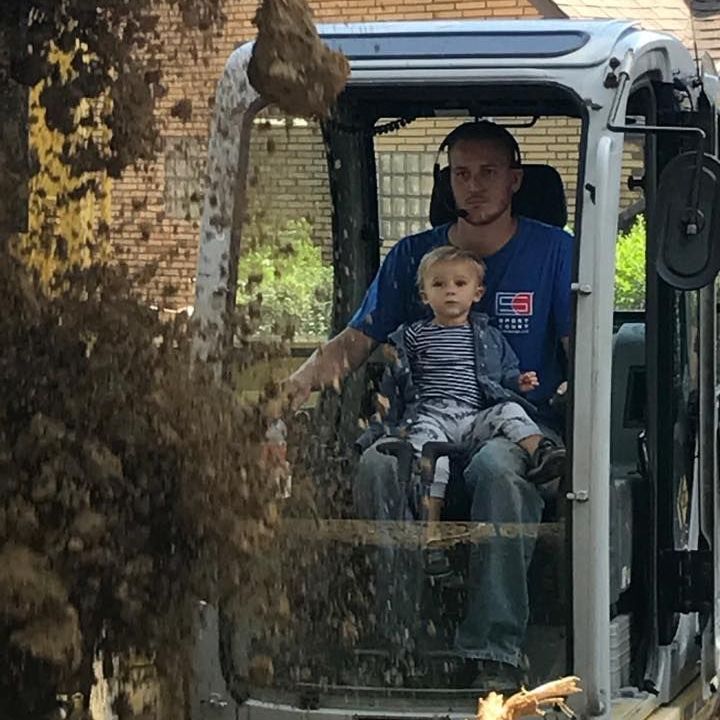
Author: Jay Nagy
Owner & Founded of J Bird's Landscaping. 18+ Years of experience in Pittsburgh lawn cutting, patio installation, trucking/hauling, French drain installation, and other landscape/design services.
More Posts from J Bird's Landscaping
